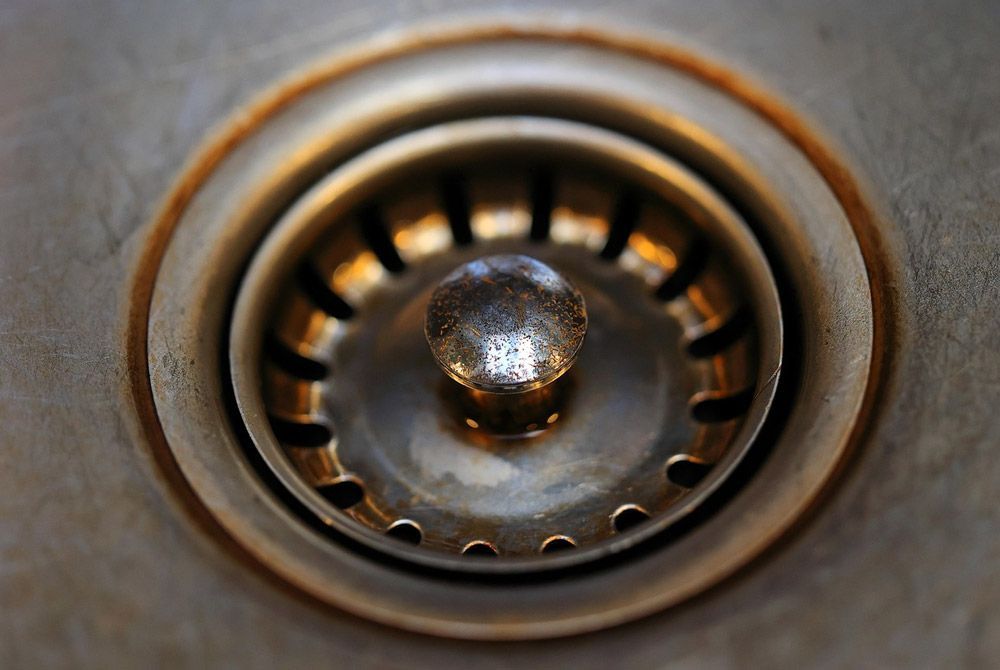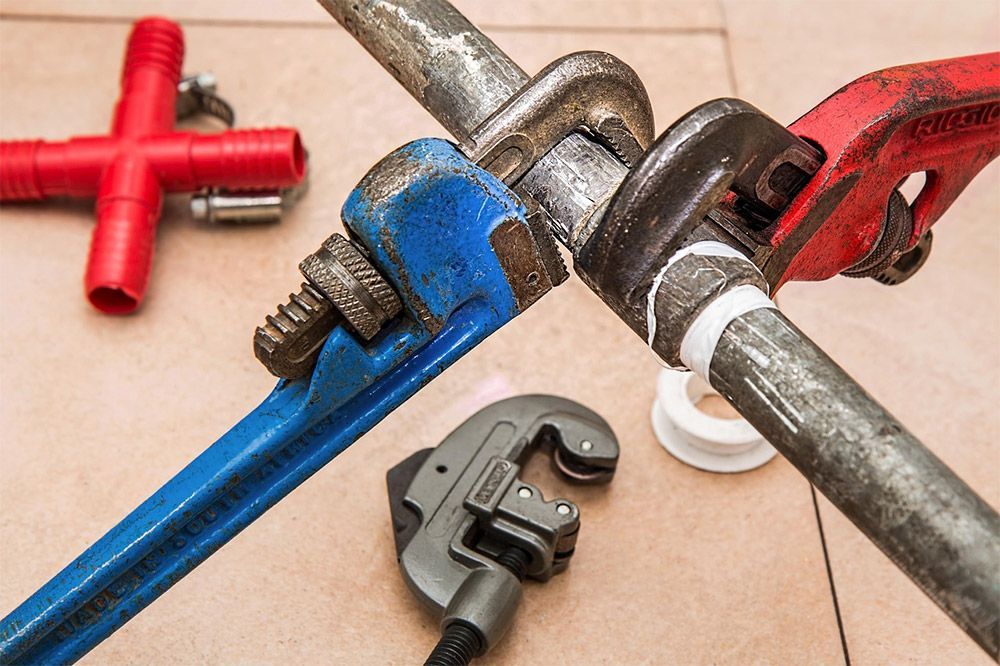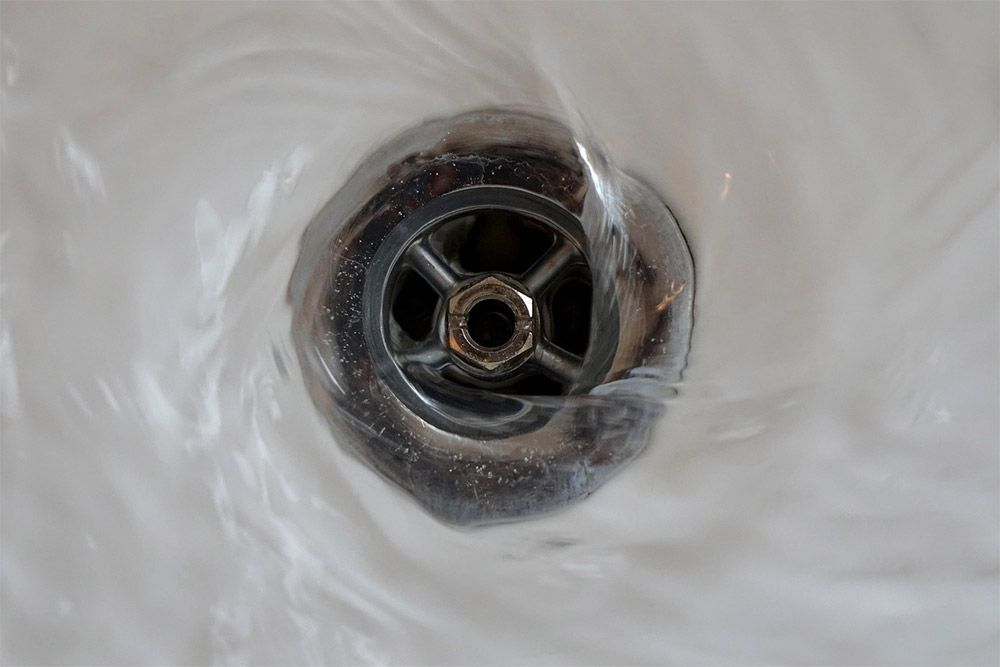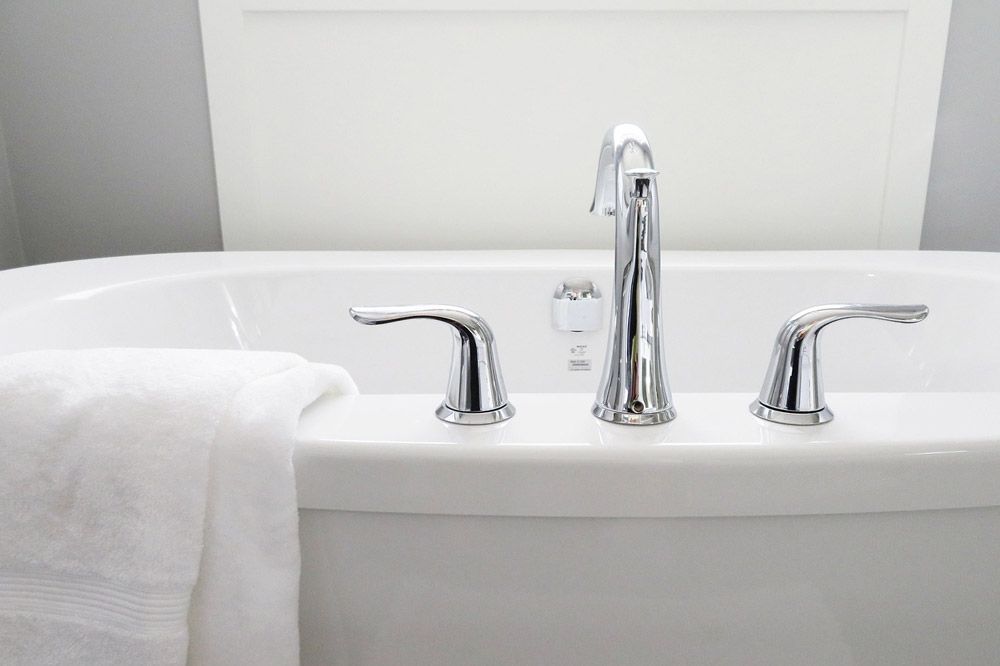Sewer Line Scope Inspection in Denver
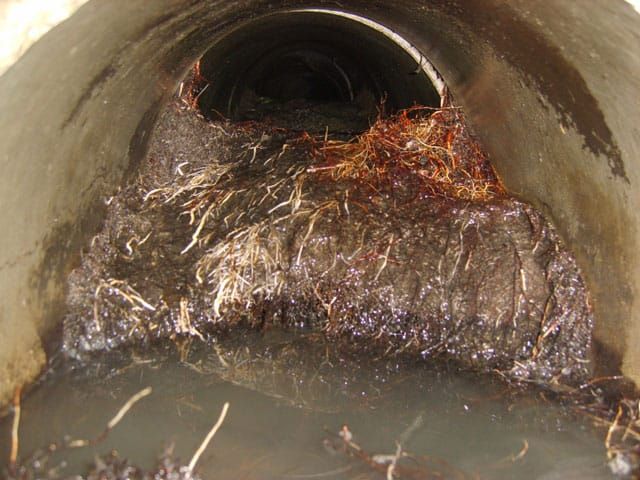
There's nothing quite like experiencing sewer line problems in your home or business in Denver. From clogged drains to backed up pipes, these types of issues can cause a great deal of stress and frustration. Fortunately, there's a solution that can help you get to the bottom of the problem quickly and efficiently. At Afford A Rooter Plumbing, we offer sewer line scope inspection services that are designed to identify exactly where the problem lies. By using specialized cameras and equipment, our experienced team can quickly pinpoint the cause of the issue and recommend the best course of action. Don't wait until the problem gets worse – call us today for a sewer line scope inspection in Denver. Call Afford A Rooter Plumbing at 720-296-7972
What is a Sewer Scope in Denver
Being a Denver homeowner, you may have heard the term "sewer scope" thrown around when it comes to plumbing and home inspections. But what exactly is a sewer scope? Simply put, it is a specialized camera that gets inserted into your home's sewer lines to determine the condition and identify potential issues such as blockages, cracks or leaks. This technology has become increasingly popular in recent years as it allows Denver homeowners to proactively prevent costly damage and repairs that can come from neglecting a sewage system. Whether you're a first-time Denver homebuyer or a seasoned Denver homeowner, knowing what a sewer scope is and when to get one can save you time, money and headaches down the line. Call Afford A Rooter Plumbing at 720-296-7972 to get your Sewer Scope inspection in Denver.
What is a Sewer Scope Inspection
What is a Sewer Scope Inspection? It's a question that many homeowners and buyers are often unfamiliar with. In short, it is a service that involves a plumber or specialist inspecting the sewer and drainage pipes of a property. This can be important for several reasons. For instance, it can reveal any issues such as cracks, blockages, or tree root intrusion that could cause serious damage down the line. Catching these problems early can save homeowners from costly repairs and can also give buyers peace of mind when making a purchase. The process involves specialized equipment such as a camera that is put down into the pipes, allowing the inspector to get a clear view of any issues. All in all, a Sewer Scope Inspection is an investment that could help you avoid headaches in the future. Call Afford A Rooter Plumbing at 720-296-7972 to get your sewer scope inspection in Denver.
How long Does a Sewer Scope take?
When it comes to the world of home maintenance, having a sewer scope inspection is one of the most important things you can do for your Denver property. This process involves inserting a specialized camera into your home's sewer line to get a clear view of the interior and spot any potential issues or blockages. But, how long does a sewer scope take? Well, it really depends on a few factors, such as the length of your sewer line and the severity of any issues found. Generally, the entire process can take anywhere from 30 minutes to an hour, but it's always best to allow for a bit of flexibility to ensure a thorough job is done. Regardless of how long it takes, investing in a sewer scope inspection is a valuable investment for any homeowner looking to maintain the value and safety of their property. Call Afford A Rooter Plumbing at 720-296-7972 to get your sewer scope inspection in Denver.
When it comes to home sewer inspections, one essential component that often gets overlooked is the sewer line. Not only can a damaged sewer line lead to sewage backup and water damage, but repairs can also be incredibly costly. That's where a sewer scope comes in. This service involves a licensed plumber inspecting your sewer line using a specialized camera to identify any potential issues. But just how much is a sewer scope? The cost can vary depending on factors such as the size of your home and the location of your sewer line. Generally, you can expect to pay anywhere from $100 to $500 for a sewer scope. However, the investment can save you thousands in the long run and provide peace of mind knowing your sewer line is in good condition. Call Afford A Rooter Plumbing at 720-296-7972 to get your sewer scope inspection in Denver.
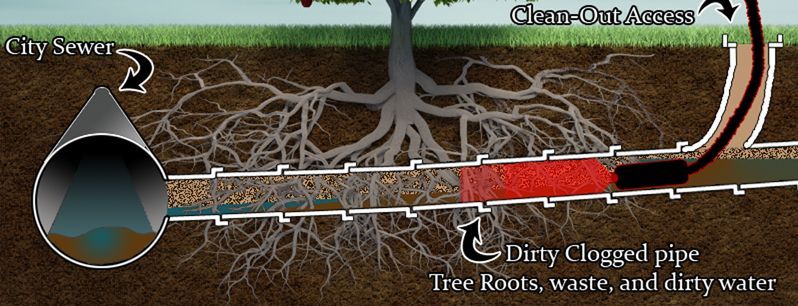
Should I Get a Sewer Scope Inspection
If you're a Denver homeowner, you're probably used to having to schedule regular inspections to ensure everything is running smoothly. But have you ever considered a sewer scope inspection? While it may not be the first thing on your mind, a sewer scope inspection can provide valuable insight into the state of your home's plumbing system. By using a specialized camera to inspect your sewer lines, a professional can identify any potential issues before they turn into costly and messy problems. So, should you get a sewer scope inspection? It may be worth considering, especially if you're experiencing slow drains, foul odors, or certain other plumbing issues. A minor investment now could save you from major headaches down the road. Call Afford A Rooter Plumbing at 720-296-7972 to get your sewer scope inspection in Denver.
When it comes to your home's plumbing, there are many issues that can arise without warning. Pipes can become clogged with debris, cracks can appear in the line, and tree roots can invade the system. That's where the sewer scope camera comes in handy. With this incredible tool, plumbers can get a clear visual of all the pipes and determine the root cause of any plumbing problem. By inserting a small camera into the main sewer line, they can locate the source of the issue and fix it quickly and efficiently. With a sewer scope camera inspection, you can avoid costly repairs and even potential health hazards caused by sewage backups. Trust in the power of the sewer scope camera to keep your Denver home's plumbing in tip-top shape.
Sewer Scope inspection Near ME
Are you experiencing recurring clogs or slow drains? It's time to call in the experts at Afford A Rooter Plumbing for a sewer scope inspection near you. With state-of-the-art equipment and highly trained technicians, our team can quickly identify any issues within your sewer system. A sewer scope inspection is a non-invasive and cost-effective way to diagnose problems, ensuring we accurately pinpoint the source of the issue. By fixing the problem before it becomes a major issue, you can save money and prevent any potential health hazards. Don't wait until it's too late; contact Afford A Rooter Plumbing today at 720-296-7972 to schedule your sewer scope inspection.
Being a homeowner in Denver, it's important to keep your sewer system in good condition. That's where a sewer scope in Denver comes in handy. With sewer scope Denver services, you can get a detailed look at the interior of your sewer line to identify any potential problems before they become costly issues. From tree root intrusions to clogs, a sewer scope can catch it all. Plus, with modern technology, sewer scopes are a non-invasive process that won't cause damage to your property. It's a smart investment for any homeowner that wants to prioritize their plumbing system. With a sewer scope in Denver, you can rest easy knowing your sewer system is in good hands. Contact Afford A Rooter Plumbing today at 720-296-7972 to schedule your sewer scope inspection in Denver.
When it comes to home maintenance, many Denver homeowners tend to overlook the importance of regular sewer line inspections. But a Sewer Line Scope can be the difference between a minor issue and a costly repair. With age and wear and tear, sewer pipes can crack, corrode or even collapse. Without the right equipment, it can be tough to detect these issues. That's where a Sewer Line scope comes in. Professional plumbers Afford A Rooter Plumbing use specialized cameras to navigate through the entire length of the sewer line, giving you a clear picture of any problems that may be lurking. Don't wait until your sewer line backs up into your home. Schedule a Sewer Line scope today and get peace of mind on the safety and efficiency of your plumbing system. Contact Afford A Rooter Plumbing today at 720-296-7972 to schedule your Sewer Scope in Denver.
Before purchasing a new home in Denver one of the most important things to consider is the condition of the sewer line. A sewer scope inspection is essential to give you an accurate understanding of any potential issues with the sewer line. You may be wondering: what is the average sewer scope cost? The cost of a sewer scope inspection can vary depending on various factors such as the location of the property and the scope of the inspection required. However, it should be seen as a small investment in the long term health of your home. The cost of a sewer scope inspection is a small price to pay for the peace of mind that comes with knowing that your home's sewer line is in good condition. So before making your final decision on a new property, don't forget to budget for a sewer scope inspection. Contact Afford A Rooter Plumbing today at 720-296-7972 to schedule your Sewer Scope in Denver.
As a homeowner or prospective home buyer, one of the most important things you need to consider is the state of your property's sewer system. A Sewer Scope Inspection is a crucial step in ensuring that the plumbing in your home is working properly and efficiently. This inspection can save you thousands of dollars in unexpected sewer repairs. But how much does a Sewer Scope Inspection cost? The price can vary depending on several factors, including location and size of the property. Some companies charge a flat rate, while others charge by foot. Nevertheless, the cost of a Sewer Scope Inspection is nothing compared to the potential expense of repairing a damaged sewer line or replacing the entire system. It is a smart investment and provides peace of mind knowing that you are maintaining the health and safety of your home. In Denver the cost is between $100 to $500.00. Contact Afford A Rooter Plumbing today at 720-296-7972 to schedule your Sewer Scope in Denver.
Are you in the market for a sewer scope rental? If so, you have come to the right place. Our rentals are top-of-the-line and will get the job done efficiently. Sewer scopes are an essential tool for anyone who wants to inspect pipes without digging underground. Whether you are a homeowner, business owner, or contractor, you will find a sewer scope rental to be an invaluable asset. Our rentals are available at affordable prices, and we offer flexible rental options to fit your needs. With our sewer scope rentals, you will have peace of mind knowing that your pipes are in good working condition. Contact Afford A Rooter Plumbing today at 720-296-7972
Are you in the market for a new home? Or are you a current homeowner encountering frequent drain clogs and slow drains? Either way, a sewer scope test may be the solution you need. A sewer scope test is a thorough inspection of the sewer line leading from the home to the city main. This type of inspection can locate blockages and other issues deep within the sewer line that may be causing clogs or backups. This non-invasive and cost-effective test can save you headaches and money down the road by identifying any problem areas before they become major issues. So, whether you're purchasing a new home or experiencing issues with your current one, consider the peace of mind that comes with a sewer scope test. Contact Afford A Rooter Plumbing today at 720-296-7972
Sewer issues can be a nightmare for any Denver homeowner. Thankfully, Sewer Scope Services by afford A Rooter Plumbing are here to take away the stress of sewer problems. With their top-notch service, you can gain a better understanding of what's causing the issue and how they can help to fix it. Through their sewer scope services, the team at afford A Rooter Plumbing can identify any blockages or damage in your sewer line, saving you time, money, and potential headaches in the long run. Trust Afford A Rooter Plumbing to deliver quick and efficient solutions to your sewer troubles. Call 720-296-7972
Sewer Scope Equipment by afford A Rooter Plumbing is a game-changer when it comes to diagnosing sewer line issues. The latest technology used by the company ensures unparalleled accuracy and efficiency in identifying the root cause of the problem. With Sewer Scope Equipment by afford A Rooter Plumbing, customers can rest assured that they are getting the best possible solution that saves both time and money. The experienced technicians at the company are equipped with cutting-edge equipment that is designed to navigate the entire length of the sewer line with ease. So, if you are experiencing any kind of sewer issues, look no further than Sewer Scope Equipment by Afford A Rooter Plumbing for a reliable and effective solution. Call 720-296-7972, today!
Sewer Scope Inspection in Denver, CO
At Afford A Rooter Plumbing, we understand the frustration and stress that comes with a Sewer Scope Inspection in Denver, CO. That's why we're here to help. Our team of professional plumbers are available 24/7 to provide prompt and reliable Sewer Scope Inspection services. Whether you're dealing with a burst pipe, a clogged drain, or any other urgent plumbing issue, we have the experience and expertise to fix the problem quickly and efficiently. Don't wait until it's too late - call us today at 720-296-7972 and let us take care of your Denver Sewer Scope.
Afford-A-Rooter Plumbing Services offer a variety of emergency plumbing services to Denver, CO clients that are in need of Repairing toilets, water heaters, dishwashers, garbage disposals, water softeners, gas fireplaces & any leaking pipe, sewer cleaning or sewer line repairs. When preventative techniques are no longer an option, our team will handle whatever sewer service is required to get pipes back in optimal condition. Whether it’s sewer line repairs or full-scale replacements, our team treats each project with meticulous care. Let our experts provide you with reliable and efficient sewer services in Denver, CO, Call 720-296-7972.
The Afford-a-Rooter Plumbing Repair Guarantee
24/7 Immediate Response
Certified Emergency Plumbing Service Professionals
Affordable, High-Quality Services
Recent Blog Post
